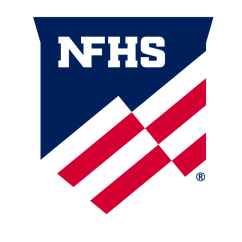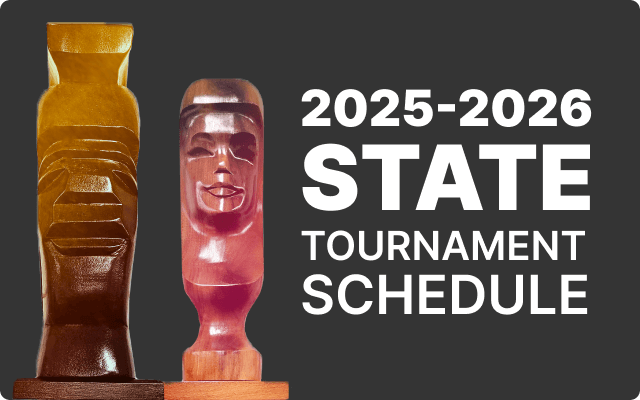The NFHS Voice

 The NFHS Voice
The NFHS Voice
Emphasis on Sportsmanship in High School Activities Now Extends to Online Behavior
Dr. Karissa L. Niehoff, NFHS Executive Director
With the changes that have occurred in college sports the past couple of years, high school sports is truly the last level of pure amateur competition in our country – and the NFHS and its member state associations want it to remain that way.
As football, volleyball, soccer, field hockey and other sports begin this fall, high school coaches and athletic/activity directors will be involved in preseason meetings to emphasize the expected outcomes of education-based sports, as well as speech, debate, music, theatre and other programs.
Among those fundamental values of education-based activities that must be discussed is sportsmanship, or good sporting behavior. More than winning, more than learning the skills of a sport, a focus on sportsmanship has been one of the defining elements of high school sports and other activities for more than 100 years.
Along with maintaining the sound traditions of sports and minimizing the risk of injury, NFHS playing rules encourage sportsmanship, and the first page in all NFHS rules publications includes a statement noting that “each athlete is responsible for exercising caution and good sportsmanship.”
In the past, with an emphasis on conduct on the playing field or court – or in the auditorium or rehearsal hall – sportsmanship has been defined as those qualities of behavior that are characterized by generosity and genuine concern for others. More so than preparing students to play sports or another activity at the next level, one of the significant goals of education-based high school sports and activities is helping the 12 million-plus individuals in these programs to become responsible citizens.
And in today’s online world dominated by hand-held devices, that goal has become more challenging. Now, messages to students in high school sports and other activities about sportsmanship must be communicated before they hit the practice field or court because one inappropriate post, tweet or message could alter their lives forever.
At the recent virtual National Student Leadership Summit hosted by the NFHS, Christina Jontra of Neptune Navigate, one of the newest NFHS corporate partners, discussed the need for good sportsmanship online as much or more so than on the court or field.
In the digital age in which we live, participants in high school activity programs need to be aware that their character and respect for others should be the same, whether in the sport or activity itself, or online.
As the popularity and influence of social media continues to surge, it is imperative that student-athletes, as well as coaches, administrators, parents and everyone involved in education-based athletics, are aware of the ways they can endanger themselves with their online behavior and understand the techniques they can employ to prevent that from happening.
In her recent presentation, Jontra noted five characteristics of good sportsmanship online – honesty, compassion, respect, responsibility and courage. Just as a student would respect an opponent on the field or in the debate room, the same must occur online.
At preseason meetings this fall, coaches and athletic/activity directors should encourage students in their programs to be mindful of online contact with individuals on opposing teams – particularly any bantering that could be perceived as cyberbullying. As Jontra mentioned in her message during the NSLS, hurtful words can ruin a person’s life forever.
Fortunately, during the season, the millions of high school students involved in sports and performing arts have less free time to spend online on a daily basis, but the time spent must be done in a positive manner. Not only could damaging words on social media affect a student’s chances for an athletic scholarship, inappropriate messages could also negatively impact future job possibilities as employers are more actively auditing social media.
Whether the setting is before hundreds of people at an actual game or event, or a private experience alone online, positive and respectful behavior should be the choice every time.
Dr. Karissa L. Niehoff is in her seventh year as chief executive officer of the National Federation of State High School Associations (NFHS) in Indianapolis, Indiana. She is the first female to head the national leadership organization for high school athletics and performing arts activities and the sixth full-time executive director of the NFHS. She previously was executive director of the Connecticut Association of Schools-Connecticut Interscholastic Athletic Conference for seven years.









